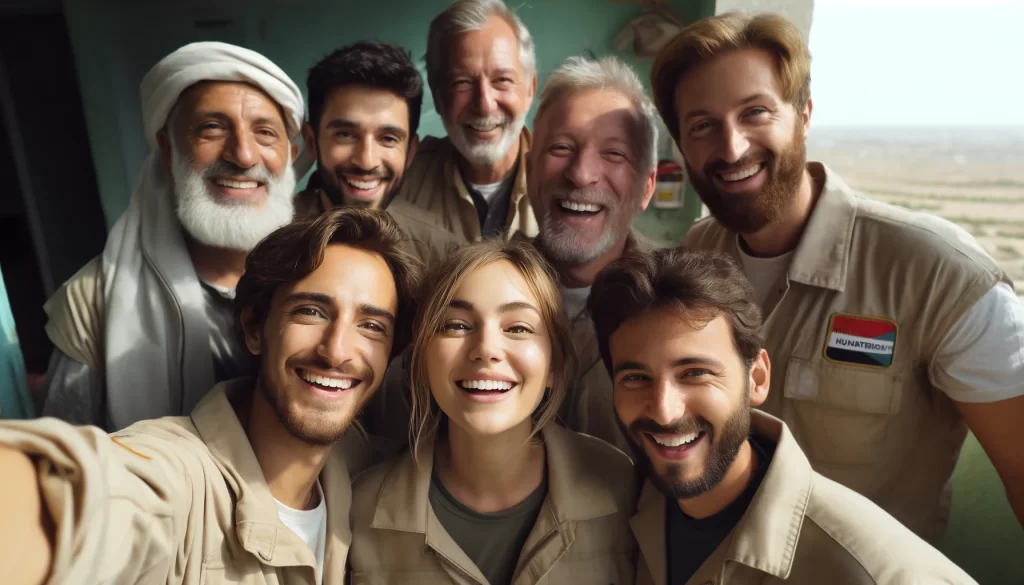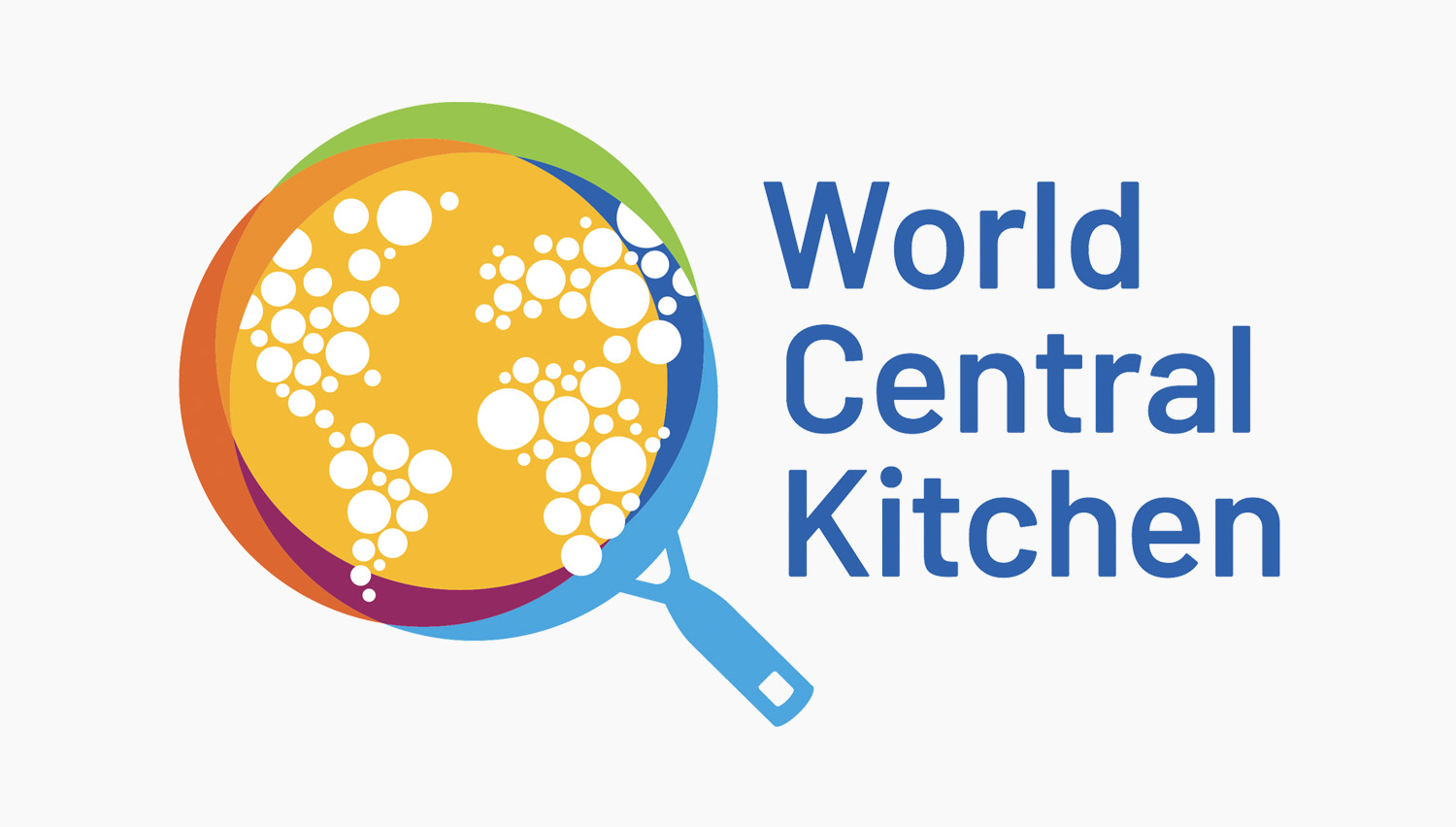On Tuesday, World Central Kitchen (WCK), an organization dedicated to providing food aid, announced a significant pause in its efforts within Gaza. This decision came after a tragic incident where an Israeli military action resulted in the deaths of seven individuals associated with the organization, leading to a halt in the critical supply of food to an area in dire need.
Israeli Prime Minister Benjamin Netanyahu has acknowledged the military action, stating it was not intentional and has pledged to conduct a thorough investigation into the matter. Among those who tragically lost their lives were citizens from various countries, including three from the United Kingdom, a dual citizen of the United States and Canada, an individual from Palestine, as well as nationals from Australia and Poland. These individuals were part of a team that played a crucial role in Gaza’s relief efforts, bringing essential supplies to those in need.
Erin Gore, the CEO of WCK, has expressed outrage over the incident, labeling it as a “targeted attack” by the Israel Defense Forces (IDF), which she described as “unforgivable.” The organization, known for its food aid initiatives, has managed to deliver an impressive amount of assistance to Gaza, including over 1,700 trucks and several sea shipments from Cyprus.
The incident occurred as the team was leaving a warehouse after unloading more than 100 tons of food aid, which had been shipped to Gaza through a maritime route. Despite the coordination with the Israeli military and traveling in vehicles clearly marked with the WCK logo, the convoy was struck, leading to significant casualties and sparking international concern.
This event marks the first occurrence of foreign aid workers being killed in Gaza since the conflict began on October 7 (although, in the same conflict, there have been a record number of Palestinian aid workers being killed). The deaths have sent shockwaves through the humanitarian aid community, prompting other aid organizations to reconsider their operations in the region amid growing concerns of a potential famine in Gaza.
James McGoldrick, a United Nations humanitarian coordinator, pointed out a concerning trend: the recent tragedy isn’t a one-time event and highlighted that since October, there have been at least 196 humanitarian workers who lost their lives in the West Bank and Gaza, areas currently under conflict. This number, he noted, is almost triple the number of humanitarian deaths usually recorded in a year’s span of any given conflict. Despite these alarming statistics, McGoldrick reassured that the United Nations remains committed to continuing its efforts to deliver aid to those in need.
However, the American Near East Refugee Aid organization, which has been providing 150,000 hot meals daily to the people in Gaza in collaboration with WCK, has had to make the difficult decision to pause their operations there. This action comes after a tragic incident where a logistics coordinator from the organization was killed. This coordinator was in a house with his family when it was hit by an Israeli strike. Sean Carroll, the leader of the organization, mentioned that the location of the house had been clearly communicated to the IDF multiple times before the incident occurred. This pause in their crucial meal distribution service is described as an “unprecedented” move for the organization.

In response to the tragedy, Project HOPE, another global health nonprofit, has temporarily suspended its activities in Gaza.
The aftermath of the strike has led to the suspension of WCK’s operations and the return of unused aid supplies to Cyprus. The incident has prompted responses from international leaders, including Prime Minister Anthony Albanese and British Foreign Minister David Cameron, who have expressed their distress and called for accountability.
José Andrés, the founder of WCK and a well-known chef, expressed his deep sorrow and called the victims his “sisters and brothers” and “angels.” He took to social media to voice a strong plea to the Israeli government, urging an end to what he described as indiscriminate actions and restrictions that negatively impact humanitarian aid efforts, civilian safety, and the use of food in conflict.
The Palestine Red Crescent Society (PRCS) played a crucial role in the recovery of the victims, undertaking a difficult operation to retrieve and transport the bodies to a location where they could be safely evacuated. This process involved initial transport to a hospital in Deir al-Balah, close to where the devastating strike took place, and subsequently to another hospital near Gaza’s southern border for further proceedings.
The effort to recover all the victims was challenging, with some initially missing and the area still considered dangerous. It took several hours of coordination with Israeli forces to ensure the safe retrieval of all bodies. This event has been part of a disturbing trend where humanitarian and healthcare workers face dangers, even when their missions have been communicated to and ostensibly coordinated with military authorities.
Internationally, there has been a call for accountability and protection for humanitarian aid workers, emphasizing the critical nature of their mission and the essential protection they should be afforded under international law. Australian Prime Minister Albanese, along with spokespersons from the U.S. National Security Council, has demanded a thorough investigation and accountability for the incident, highlighting the unacceptable loss of lives among those providing humanitarian assistance.
The broader context of the conflict has brought increasing international scrutiny and pressure on Israel concerning the humanitarian consequences of its military actions and the siege of Gaza, especially in light of the International Court of Justice’s directives to ensure the provision of essential services and aid to Palestinians in the region.
WCK, under Andrés’s leadership, has become a beacon of hope and assistance in crisis zones worldwide. The organization’s efforts in Gaza, particularly in facilitating the delivery of substantial food and water supplies through innovative solutions like the construction of a jetty, demonstrate a committed response to the dire needs of affected populations. Despite the challenges, including Israel’s comprehensive siege aimed at Hamas following their attacks, WCK has continued to strive towards alleviating the humanitarian crisis in Gaza, with the IDF stating cooperation with WCK’s noble efforts.
This article is based on the following article:
https://www.washingtonpost.com/world/2024/04/01/world-central-kitchen-gaza-deaths-wck/

Background Information
Understanding these key points provides a foundation for comprehending the complexities and human impact of the Israeli-Palestinian conflict, the challenges of providing humanitarian aid in such settings, and the specific context surrounding the tragic incident involving World Central Kitchen and its consequences on aid operations in Gaza.
Gaza and the Israeli-Palestinian Conflict
- Geography and Governance: Gaza Strip is a small region on the eastern coast of the Mediterranean Sea, bordered by Israel to the east and north, and Egypt to the south. It’s part of the territory sought by Palestinians for a future independent state but has been under Hamas control since 2007. Hamas is a Palestinian Islamist political organization and militant group that has been designated as a terrorist organization by several countries and international organizations.
- Conflict Background: The Israeli-Palestinian conflict dates back to the early 20th century, rooted in the competing national movements of Jews and Arabs following the decline of the Ottoman Empire. The creation of Israel in 1948 led to several wars and ongoing tensions, with Gaza often being a flashpoint due to its strategic location and political control.
- Blockades and Humanitarian Issues: Israel and Egypt have maintained blockades on Gaza since 2007, citing security concerns related to Hamas. These blockades limit the movement of people and goods in and out of Gaza, leading to significant humanitarian issues, including shortages of food, medical supplies, and electricity.
Humanitarian Aid in Conflict Zones
- Importance: In areas affected by conflict, such as Gaza, humanitarian aid is critical for providing food, medical care, and other life-saving services to civilians caught in the crossfire.
- Challenges: Delivering aid in these areas is fraught with challenges, including navigating conflict lines, ensuring the safety of aid workers, and dealing with blockades or restrictions imposed by conflicting parties.
- Coordination with Military Forces: Humanitarian organizations often coordinate with military forces to ensure safe passage of aid convoys. This process is complex and can be risky if communications break down or if agreements are not honored.
World Central Kitchen (WCK)
- Organization: Founded by chef José Andrés in 2010, WCK is a non-profit that responds to natural disasters and humanitarian crises around the world by providing meals to those in need. The organization has gained a reputation for its rapid response and ability to set up field kitchens in challenging conditions.
- Role in Conflict Zones: In addition to natural disaster response, WCK has operated in conflict zones, using food as a means to support communities affected by violence. Their work often involves logistical challenges and negotiations for safe access.
International Law and Humanitarian Workers
- Protection Under Law: International humanitarian law, part of the laws of war, protects humanitarian workers as civilians. It obligates conflicting parties to allow and facilitate the rapid and unimpeded passage of humanitarian relief for civilians in need.
- Accountability: When aid workers are harmed, it raises questions about violations of international law and the need for accountability. Investigations can be conducted by the involved states, international organizations, or through international courts, depending on the circumstances.

Debate/Essay Questions
- To what extent do governments involved in conflicts have a moral obligation to ensure the safety of humanitarian aid workers? Consider the challenges of distinguishing between combatants and non-combatants in modern warfare.
- How effective are international organizations and courts in holding states accountable for actions that harm humanitarian workers and civilians in conflict zones? Explore the mechanisms and their effectiveness in enforcing international humanitarian law.
- Assess the impact and challenges faced by NGOs like World Central Kitchen in providing aid in conflict zones. Debate the balance between the urgent need for humanitarian aid and the risks to the safety of aid workers.
- Evaluate the legality and morality of blockades like those imposed on Gaza from both a security perspective and a humanitarian perspective.
Please subscribe to Insight Fortnight, our biweekly newsletter!
